Vietnamese Language - Anchor to Connect Overseas Vietnamese to Their Roots
| Vietnamese Bookshelf: Connecting Overseas Vietnamese Community | |
| Vietnamese Nurtured from Worldwide Universities and Institutions |
Journey to Homeland Through Vietnamese
Jean Baptiste Pham, a French national of Vietnamese descent, was educated in the French system from the age of four. Upon retirement, he found himself deeply troubled by the lack of Vietnamese influence. "I've always felt adrift, uncertain of my place. Why am I Vietnamese if I can't speak the language or understand the culture?" he confided. This profound inquiry propelled him to explore Vietnam and reconnect with his heritage.
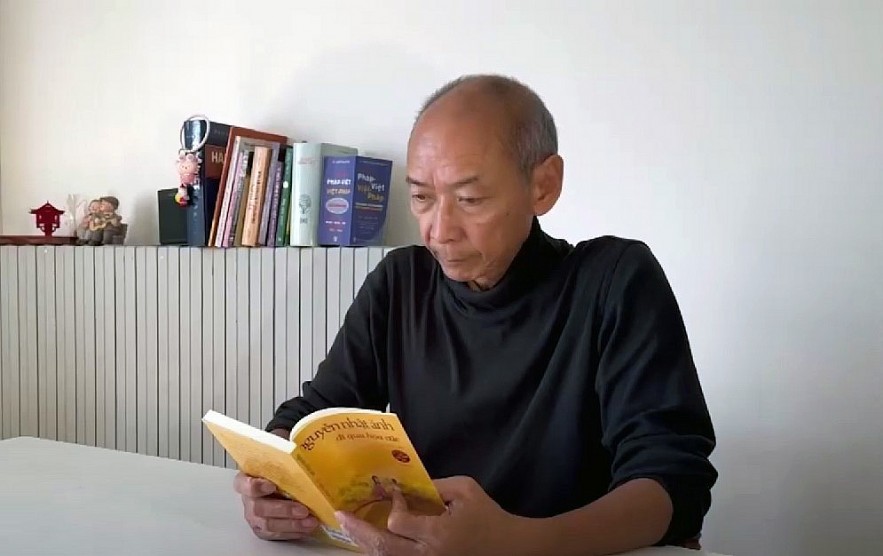 |
| After the "Stepping Stone to Vietnam" course, Jean Baptiste Pham can read, write, and speak Vietnamese. (Photo: Minh Thai) |
Jean Baptiste Pham's longing to reconnect with his heritage led him to enroll in the "Steps to Vietnam" course. This program offers insights into Vietnamese history, economy, and culture, while also facilitating the acquisition and enhancement of Vietnamese language proficiency. The program's participants are diverse, spanning ages 18 to 80, including both descendants of Vietnamese families and French individuals who hold a deep affection for Vietnam.
The initiative was established by Professor Pierre Journoud of Paul Valéry University Montpellier 3, who has been attached to Vietnam since 1997. With a son of French-Vietnamese heritage, Professor Journoud and his spouse, Dr. Nguyen Thanh Hoa, a Vietnamese language instructor at the same university, are profoundly committed to preserving the cultural heritage of the Vietnamese community in France. For them, the Vietnamese language is the tether that connects them to their origins.
After nearly 6 years, more than 100 students have graduated from the course. Many individuals delve deeply into Vietnamese studies, enhance their proficiency in the Vietnamese language, and travel to Vietnam for both leisure and employment opportunities.
For Jean Baptiste Pham, the course took him from a lack of Vietnamese language skills to being able to read, write, and converse in the language of his ancestors. The day he first expressed his thoughts fluently in Vietnamese, he felt as though he had recovered an essential piece of his identity that had been absent for years.
"I am no longer a tourist in Vietnam. I can visit families, and learn more about Vietnamese life and culture. The most interesting thing is living with a Vietnamese family and integrating with the nation through language. This program helps me truly feel like I am Vietnamese," he shared.
Having mastered Vietnamese, Jean Baptiste Pham now eagerly anticipates each trip back to Vietnam, where he engages in volunteer work and supports teaching. These visits offer him the chance to connect deeply with his roots and fully immerse himself in the Vietnamese culture.
Relearning Vietnamese at the age of 47
Similar to Jean Baptiste Pham, journalist Doan Bui - another Vietnamese expatriate - also found the desire to connect with her homeland through the Vietnamese language, although her journey began with a family incident.
Doan Bui, the daughter of a Vietnamese national who moved to France for studies in the 1970s, was born and raised in the Le Mans district, roughly 200km away from Paris. Growing up, she seldom used Vietnamese outside of family interactions. As her family assimilated into French society, the Vietnamese language slowly faded from her everyday life.
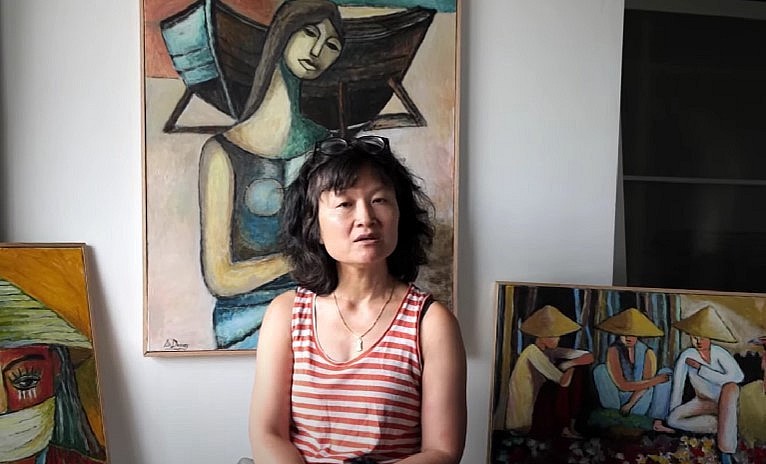 |
| Journalist Doan Bui. (Photo: Minh Thai) |
After over 40 years without speaking Vietnamese, Doan Bui was compelled to relearn the language due to a family emergency. Her father had a stroke, which impaired his communication abilities. This caused her to feel a growing distance in their relationship. "I felt disconnected from my heritage. I was embarrassed about losing touch with my roots. Being unable to speak my native language and struggling to relearn Vietnamese was frustrating. However, when I spoke Vietnamese to my father, he appeared to comprehend better, despite his inability to speak. This inspired me to rededicate myself to learning Vietnamese."
At 47, Doan Bui embarked on a journey to relearn her native language. For her, the process of learning is not just about regaining proficiency in the language but also about rediscovering lost memories and roots. Alongside formal instruction, she self-taught through podcasts and Vietnamese rap music. "I listen to a lot of Vietnamese rap, such as 'Tai san cua bo' (Dad's Asset) by ICD and 'Mang tien ve cho me' (Bring Money Home for Mom) by Den Vau. It's fascinating because, in France, rappers don't write about filial piety in this way, which makes it quite unique," Doan Bui shared.
For Doan Bui, Vietnamese is akin to a treasure hidden in the subconscious, where each word serves not just as a tool for communication but also as a vessel for memories, pride, and affection for her homeland. Delving into this treasure evokes a profound sense of emotion and a deeper connection to her identity.
"Vietnamese evokes memories of my childhood, the lullabies sung by my grandmother and mother, bringing back the warmth of family," Doan Bui remarked.
Doan Bui's quest to relearn Vietnamese transcended more than language acquisition. It was a bridge to her familial roots and a path to self-discovery. "Just two years ago, I was unable to utter a single Vietnamese word, yet today, I can engage in conversations with my father and relatives. Embracing my native language has been a transformative experience."
Besides her role as a renowned writer for the weekly magazine L'Obs, Doan Bui is also known for her autobiography "The Silent Father" (Le silence de mon père), which recounts her father's experience with a stroke that rendered him speechless. The book earned her several distinguished awards, including the Amerigo-Vespucci Prize and the Porte Dorée Literature Prize in 2016.
The stories of Jean Baptiste Pham and journalist Doan Bui show that for children living far from home, Vietnamese serve not just as a means of communication but also as a beacon guiding them back to their origins. Reacquainting oneself with their native language, irrespective of age, is a method to revive cherished memories and rediscover their identity, thereby reinforcing their affection for family and country.
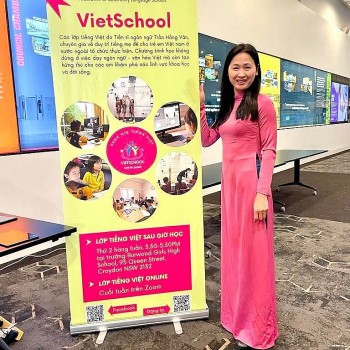 | Mothers of the Mother Tongue: Preserving Vietnamese Language Dr. Tran Hong Van, a translator and interpreter at Western Sydney University and a member of the VietSpeech project, an initiative by Charles University aimed ... |
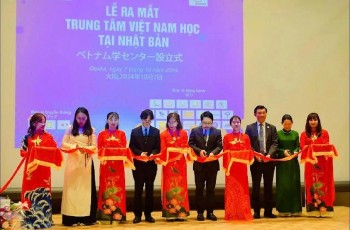 | Center for Vietnam Studies Inaugurated in Osaka, Japan The Center for Vietnamese Studies serves as a hub for coordinating comprehensive research and training on Vietnam, offering a wealth of multidimensional information and insights, ... |
Recommended
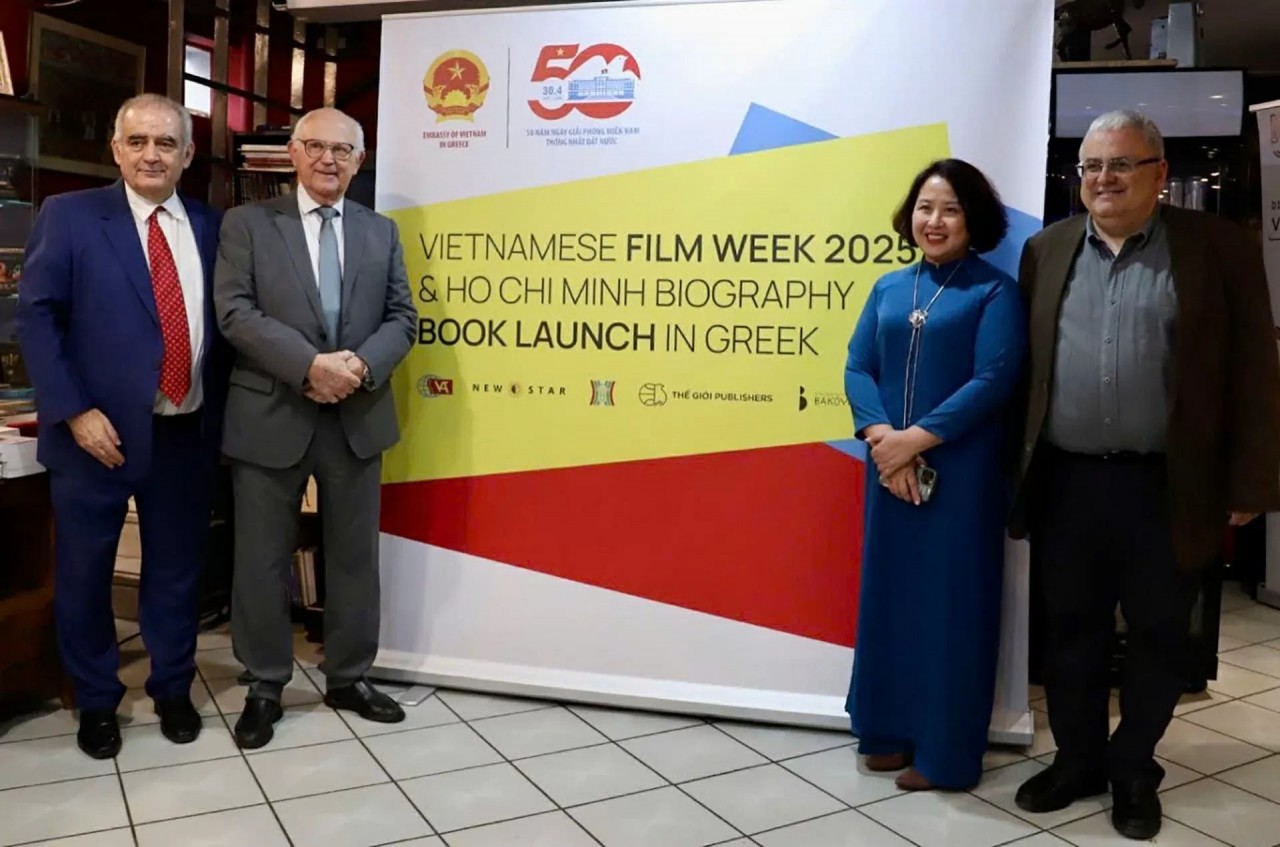 Overseas Vietnamese
Overseas Vietnamese
First Vietnamese Film Week Opens in Greece
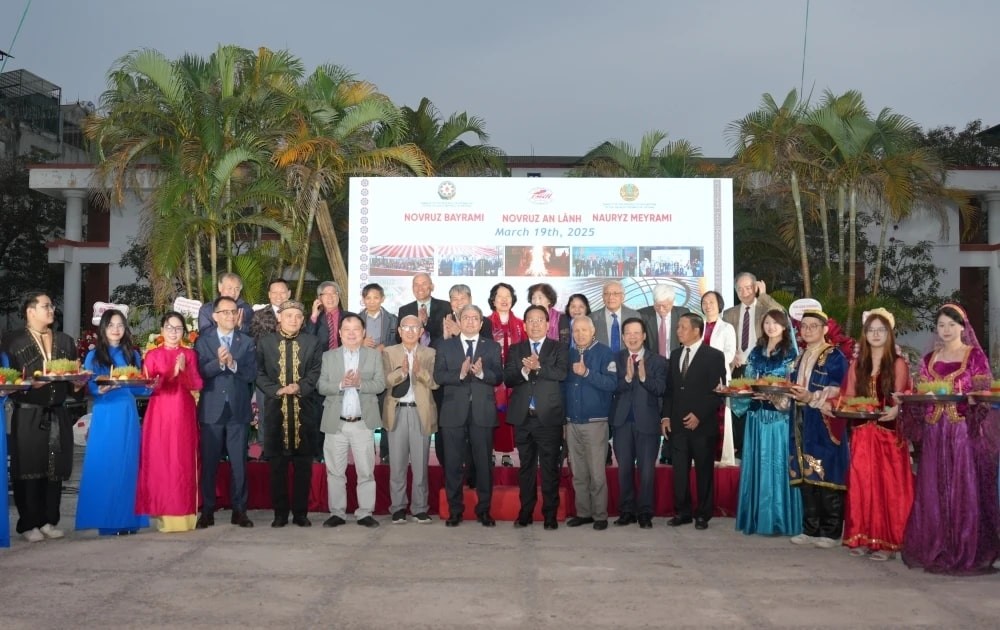 Overseas Vietnamese
Overseas Vietnamese
Strong Bonds Between Vietnam And Belarus, Azerbaijan, and Kazakhstan
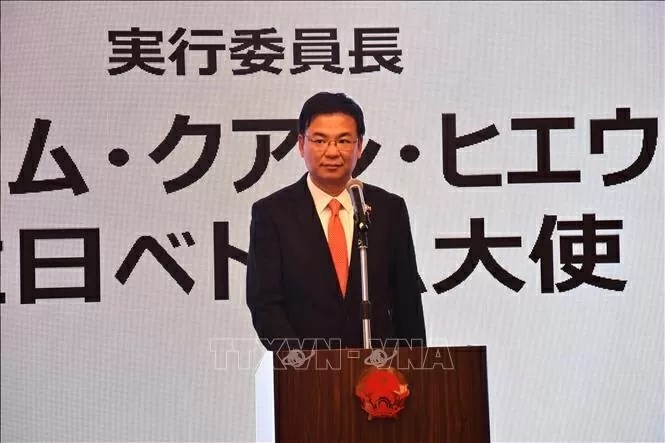 Overseas Vietnamese
Overseas Vietnamese
Vietnam Festival in Tokyo To Be Held for 18th Time
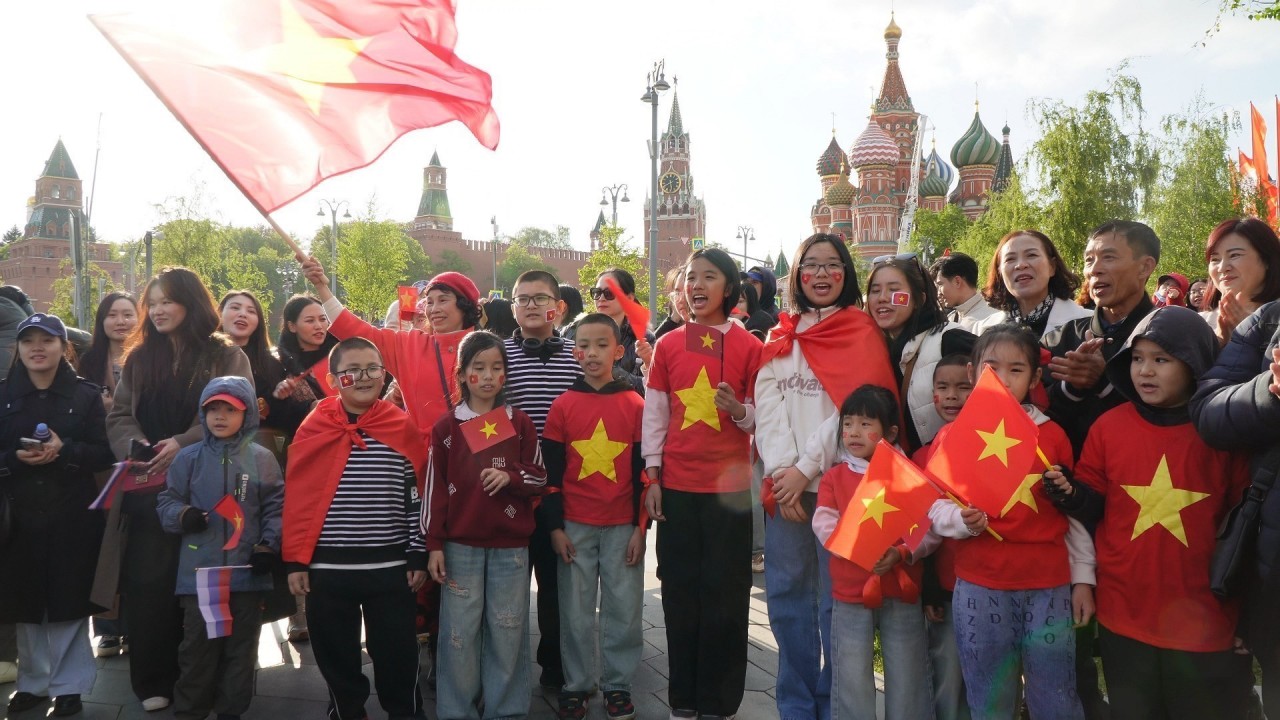 Focus
Focus
Overseas Vietnamese in Russia Welcome Vietnam People's Army Delegation at Red Square
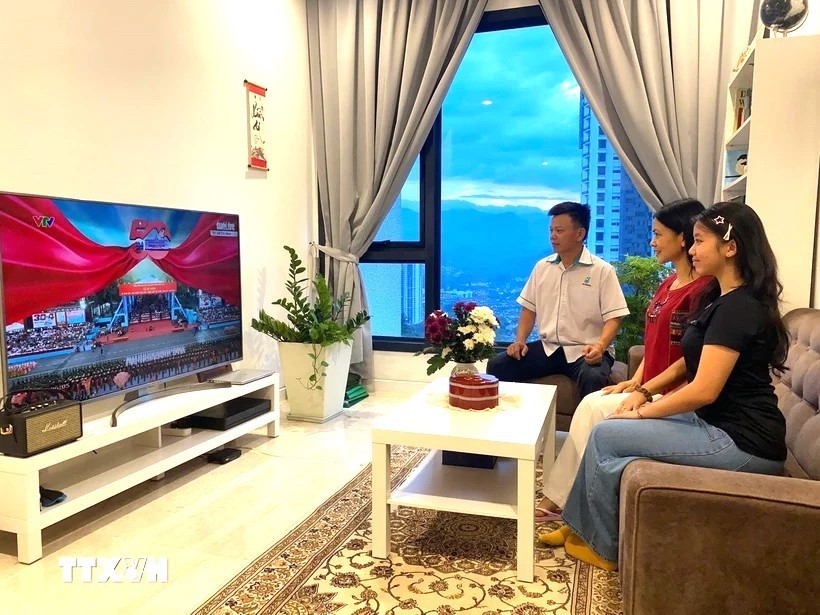 Overseas Vietnamese
Overseas Vietnamese
Global Vietnamese Community Celebrates 50 Years of Reunification with Pride
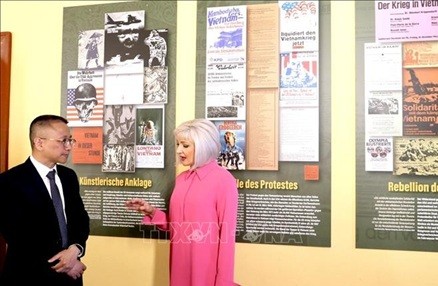 Overseas Vietnamese
Overseas Vietnamese
Exhibition “VIETNAM 75” Honors Aspiration for Independence and International Solidarity
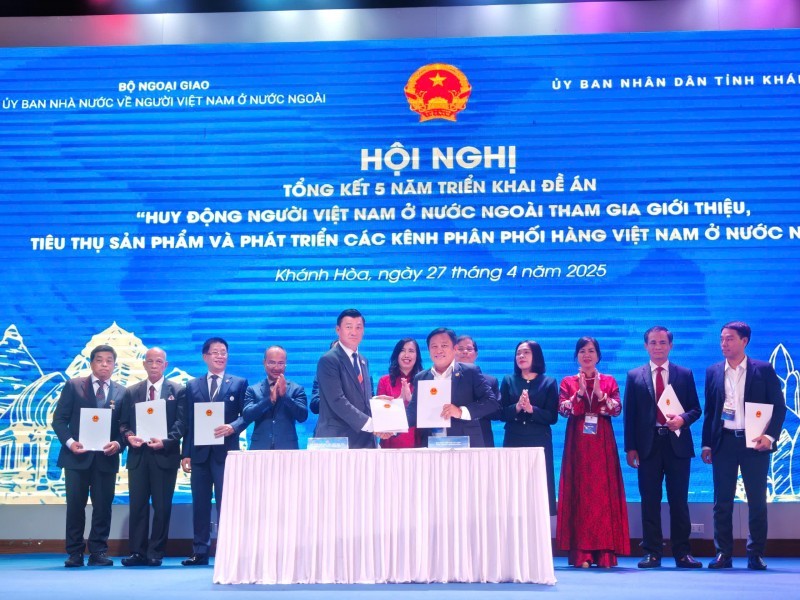 Overseas Vietnamese
Overseas Vietnamese
Overseas Vietnamese Help Boost Vietnam’s Agricultural Exports
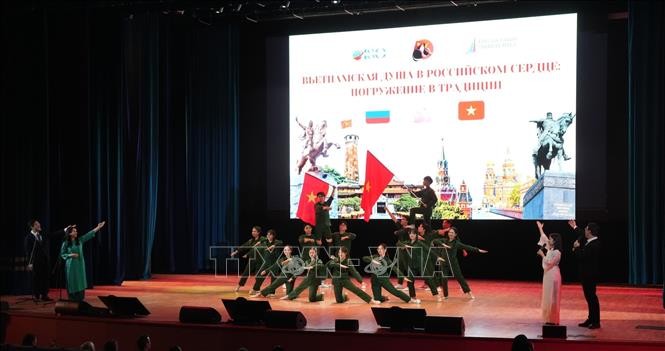 Overseas Vietnamese
Overseas Vietnamese
